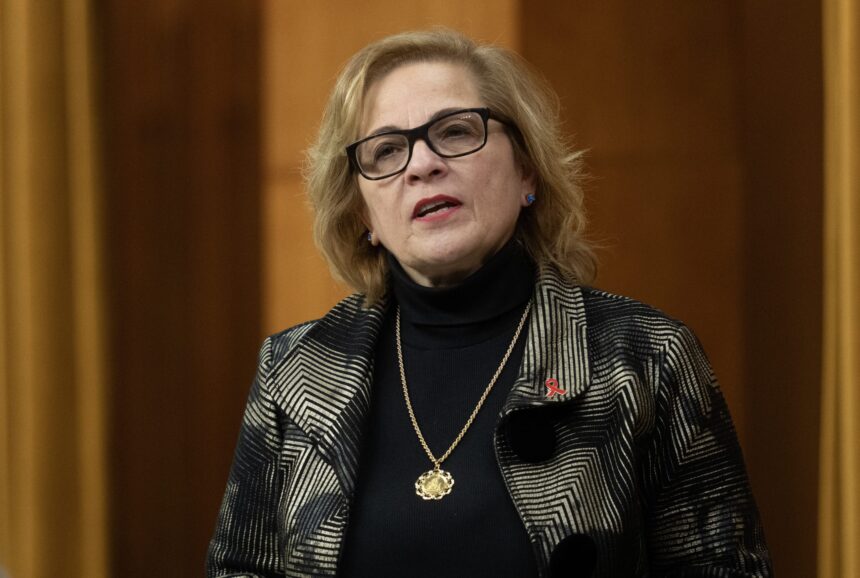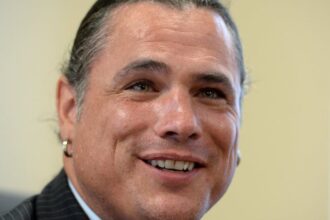In an atmosphere thick with political tension, federal Immigration Minister Marie-France Lalonde defended what she called a “productive meeting” with provincial counterparts Thursday, even as Ontario’s Minister Monte McNaughton publicly condemned the talks as “deeply disappointing” and walked away without signing any agreements.
The high-stakes federal-provincial immigration summit, held amid growing pressure on Canada’s housing and healthcare systems, revealed deepening fractures between Ottawa and several provinces over immigration targets and the distribution of newcomers across the country.
“We had frank and honest discussions about the challenges we all face,” Lalonde told reporters after the closed-door session in Toronto. “While we may not see eye-to-eye on every aspect, I believe we’ve made meaningful progress toward addressing provincial concerns while maintaining Canada’s commitment to a robust immigration system.”
Ontario’s McNaughton, however, painted a starkly different picture of the proceedings. “The federal government continues to ignore our reasonable requests for greater provincial autonomy in selecting economic immigrants and meaningful caps on temporary residents,” he said in a statement released minutes after exiting the meeting. “They’ve left us no choice but to pursue our own path forward.”
The core of the dispute centers on provincial demands for greater control over immigration numbers and selection criteria. Several provinces, led by Ontario and Quebec, are pushing for the authority to determine how many newcomers they receive based on local infrastructure capacity and labor market needs.
Quebec Immigration Minister Christine Fréchette echoed Ontario’s frustrations: “We’ve been clear about Quebec’s distinct needs and constitutional authority over immigration. Today’s discussions failed to acknowledge this reality.”
Alberta and British Columbia representatives struck more conciliatory tones but still expressed concerns about federal policies. Alberta’s Immigration Minister Muhammad Yaseen noted that while his province welcomes newcomers, “we need the federal government to match immigration levels with meaningful infrastructure support.”
The meeting comes as Canada grapples with record immigration levels, with the country welcoming over 465,000 permanent residents in 2023 alongside an unprecedented surge in temporary residents. This population growth has coincided with a housing affordability crisis and strained public services in major urban centers.
Policy experts point to legitimate concerns on both sides of the debate. Dr. Naomi Alboim from Queen’s University’s School of Policy Studies explained, “The federal government has constitutional jurisdiction over immigration, but provinces bear much of the responsibility for settlement services, housing, and healthcare. This creates inherent tensions that require sophisticated coordination.”
Federal data presented at the meeting revealed that immigration accounted for nearly all of Canada’s population growth last year, with newcomers disproportionately settling in already-crowded metropolitan areas like Toronto, Vancouver, and Montreal.
Minister Lalonde did announce several concessions, including a new working group to better align federal immigration targets with provincial infrastructure planning and increased provincial input on economic immigrant selection. “We’re committed to a more collaborative approach moving forward,” she said.
However, these measures fell short of provincial demands for binding mechanisms to limit immigration flows during periods of housing shortages or service backlogs. Several provinces have now indicated they may pursue separate bilateral agreements with Ottawa rather than accepting a national framework.
Saskatchewan Premier Scott Moe, speaking from Regina, suggested the immigration disagreement reflects deeper federal-provincial tensions: “This is another example of Ottawa imposing decisions without adequate consultation or respect for regional differences.”
As Canada approaches next year’s federal election, immigration policy is emerging as a pivotal issue that cuts across party lines and jurisdictional boundaries. The question remains: can Canada find a balance between maintaining its reputation as a welcoming nation for newcomers while addressing the legitimate infrastructure and service concerns of provinces bearing the immediate impacts of population growth?

























